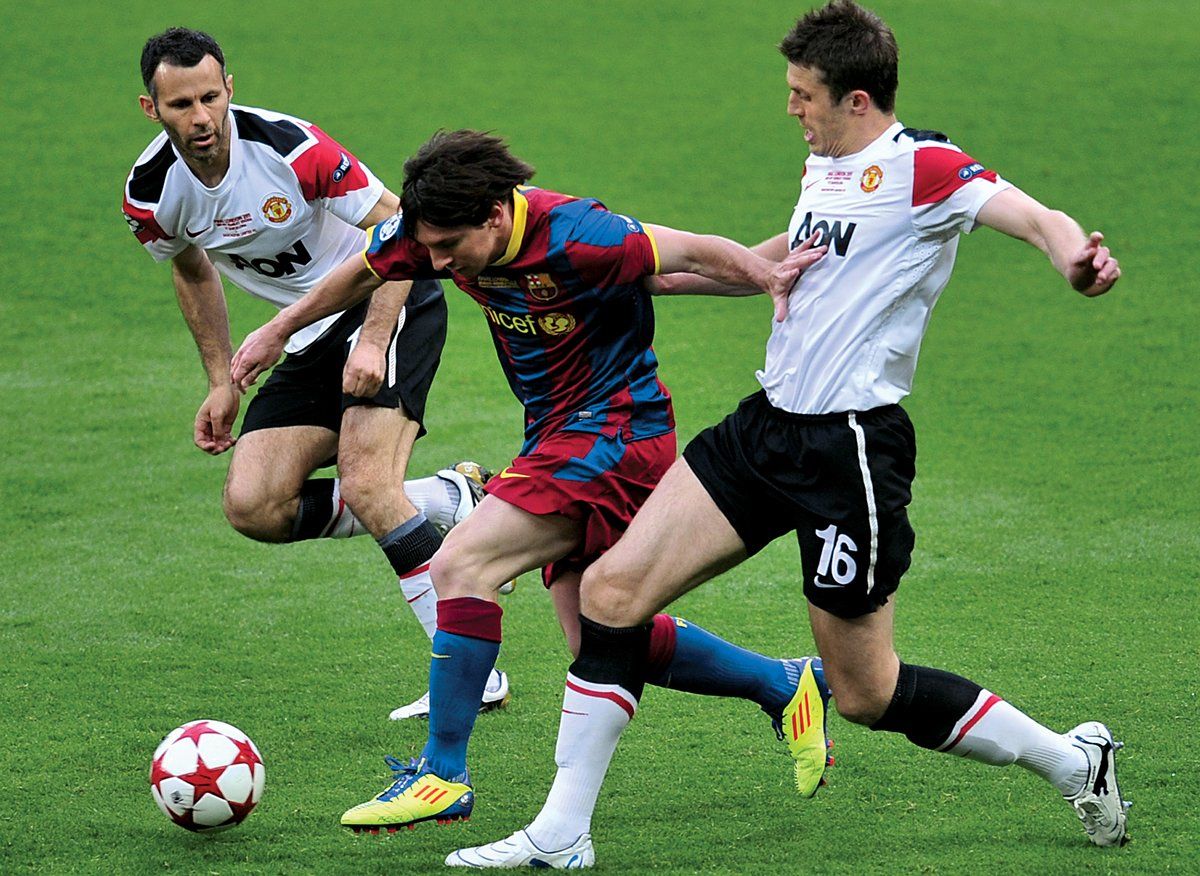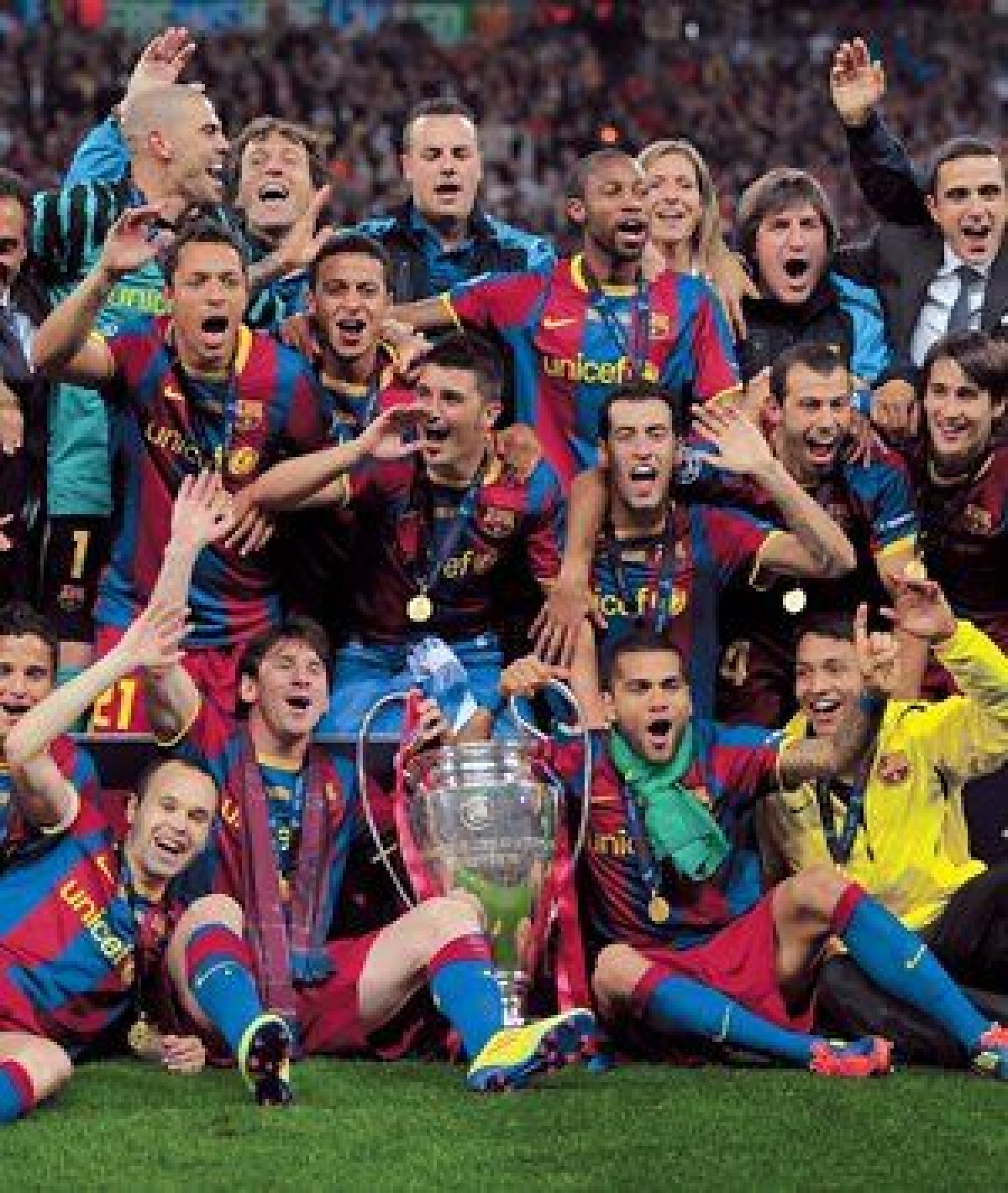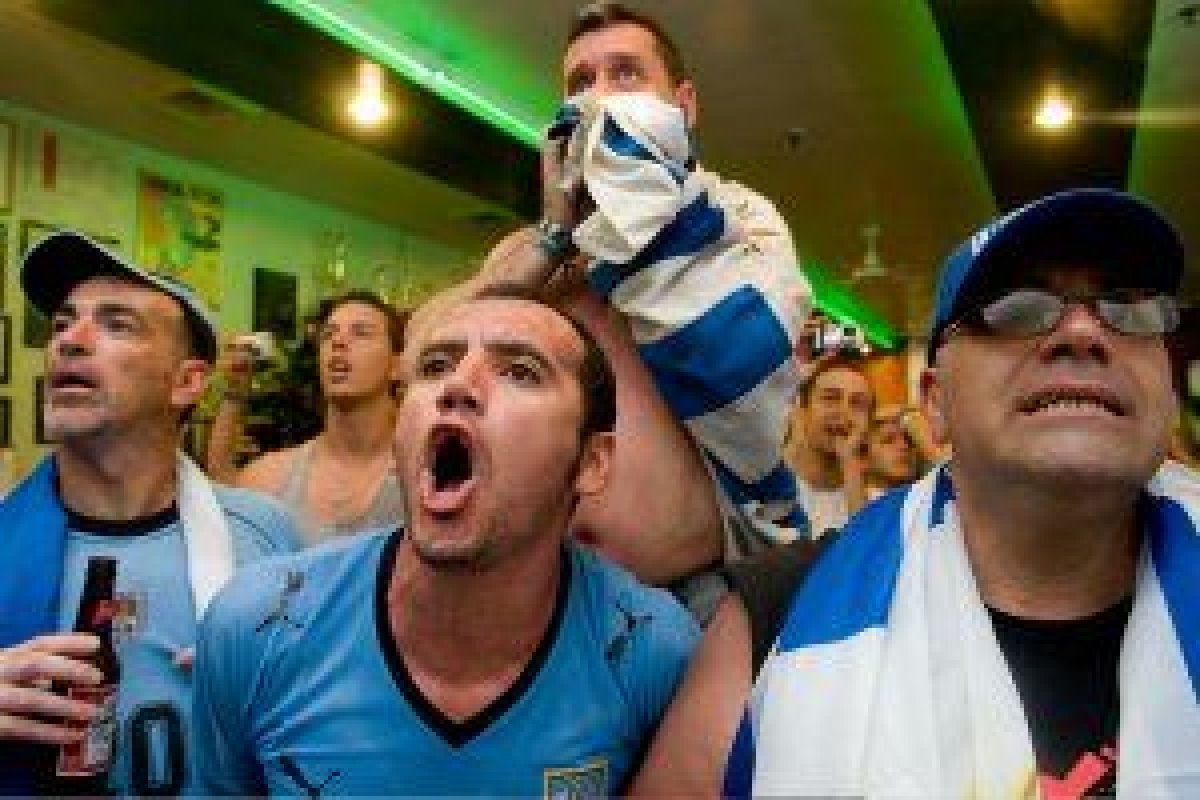
There were chants aplenty at the Champions League final May 28 between FC Barcelona and Manchester United, but few resonated as much as the mantra mockingly repeated by thousands of Barca fans all the way from London's Wembley Stadium to Barcelona's Plaça de Catalunya: "Por qué, por qué, por qué, por qué?" Why, why, why, why?
It was a question asked less than a month earlier by José Mourinho, the controversial manager of Barca's main Spanish club rival, Real Madrid, and the game's agent provocateur. Mourinho had voiced the rhetorical plaint during an angry press conference after his team lost the Spanish league and was en route to being eliminated from the Champions League. The only reason Barca was more successful than his team, Mourinho implied, was that they were good at getting referees on their side, thanks to their theatrics on the field. And by theatrics, Mourinho meant the ease with which Barca players allegedly faked falls or injuries in response to every tackle by an opponent.
But the paranoid Mourinho has had to eat his hat. FC Barcelona's 3–1 victory over the English champions United involved no diving and minimum interference by the referee against either side. Instead, a massive global audience was treated to a sublime lesson in sportsmanship, recognized by commentators worldwide, not least among them United's widely respected manager, Sir Alex Ferguson. In a week when the sport's power politics elsewhere turned ugly in the wake of corruption allegations against FIFA, soccer's global governing body, this was a players-only performance that made fans around the world marvel. Ferguson, the doyen of soccer managers, said that in his 25 years in the United hot seat, this was the best team he had ever faced.
Some think this would suggest that Barca is certainly better than United's own best team of the 1998–99 season, which became the first English side to win a treble of trophies (Premier League, FA Cup, and Champions League) with a roster that included an evolving young star named David Beckham.
For lovers of the "beautiful game," Barca's onslaught against Manchester United was soccer played at its best, with huge skill and minimum thuggery. The focus of Barcelona's play was on possession of the ball (or on winning it back during the rare moments it was lost), then attacking with an intricate choreography of precise, short passes where players moved on and off the ball in constant, fluid movement. In the words of Simon Barnes, chief sports writer at the London Times, "all soccer people turned instantly into ballet critics to applaud a style of play that had an aesthetic dimension as well as being admirably, if not lethally, suited for the purpose of attaining victory."
United found themselves outclassed, which is no easy feat, considering that the English club is one of the top three in the world, along with Real Madrid. But United had no antidote to the precision and pace of Barca's little geniuses—Xavi Hernández and Andrés Iniesta—as they passed the ball through the middle of the pitch. Nor could the Brits stop the mesmerizing dribbling of tiny Lionel Messi, who has been crowned the best player of all time by a growing band of football pundits. But it was not just Barca's so-called trinity that shone brightly—the whole team moved with a kind of poetry in motion that was as pleasing to the eye as it was effective. It was a team in which four talented internationals—Brazil's Danny Alves, Argentina's Javier Mascherano, France's Éric Abidal, and David Villa, formerly of Spain's Valencia club—fit seamlessly beside players who have been together since they were teenagers.

Both the team's style of play and its work ethos bears the personal stamp of club coach Pep Guardiola, himself a former footballer whose bygone Barca team was, until May 28, considered by a majority of fans to be the greatest in history. Guardiola has been the first to admit that he owes much of his expertise to Johan Cruyff, the Dutchman who coached Barca to its first-ever European Cup trophy in 1992 with a dream-team combination of foreign stars and homegrown talent. Cruyff is credited with introducing Barca to the concept of "total football," which he learned as a player with the Dutch champions Ajax, who won three consecutive European Cups between 1971 and '73. Cruyff's versatile system had, at its heart, the so-called central axis: the center forward and a free central midfielder were in constant contact as if connected by an invisible cord. Remaining static was not an option. The system was designed to produce a seamless rhythm of attack in which all 11 players, including the goalkeeper, were responsible for keeping the ball moving forward. Guardiola improved upon and finessed Cruyff's total football, and the fruits of his labor were more than evident in Barca's win against United.
So just how great is Barca? Cruyff himself has admitted the current team surpasses his '92 dream team. But how does it stack up against the other greatest teams of all time?
At club level, if Barca's enduring enemy, Real Madrid, refuses to be daunted, it is because they have their own track record as one of most successful clubs in international soccer. While Guardiola has won two European Cups in his three years as a coach, Real Madrid won five consecutive European Cup trophies between 1956 and '60. Real's then-president Santiago Bernabéu—a political conservative but a visionary when it came to soccer—was the first to put together a team of foreign superstars supplemented by talented locals. The quality of his team was epitomized by the flair and aggression of the Argentine Alfredo Di Stefano and his partner in attack, the Hungarian Ferenc Puskás. Between them, the two players scored seven goals in Real Madrid's crushing victory over German champions Eintracht Frankfurt in 1960, regarded at the time, and for many years thereafter, as the best European Cup final ever.

Then there's the 1970 World Cup in Mexico, where Brazil emerged as a glorious conqueror. As veteran soccer journalist Brian Glanville puts it in his history of the tournament: "For all the appalling problems of heat and altitude, all the preceding threat of violent negative play," the Brazilians triumphed "with a panache, elegance and enterprise which raised new hope for attacking football." The '70 World Cup was particularly memorable for the sheer magic produced by Brazil's superstar, Pelé. Close to retirement, Pelé reached the climax of a brilliant career playing for his country and club side Santos in a final against Italy that was also his apotheosis. With unrivaled skill and effectiveness, he scored a superb goal and helped create two others, fulfilling in that one game all the promise of the previous 12 years.
Two decades later, Italian football's AC Milan made its own bid for greatness, having briefly crossed over from a negative defensive strategy to the light of "total football." It won two successive European Cups (1989–90) with a rare combination of attacking soccer imported by its Dutch players and the strict "pressing" of Italian defense known as catenaccio.
There are other outside contenders: Bayern Munich in 1974–76; Liverpool in 1977–81; Argentina in 1986 where Maradona scored the best goal ever seen; Spain, in the finals of last summer's World Cup (in which eight Barca players won winners' medals), although there is a general consensus in the football world that the club games, rather than the tournaments between national teams, have become the true measure of excellence.
Reaching a definite verdict on whether this Barca is better than the greats that came before it is ultimately impossible, given the changing nature of football as a sport over the years. Today, stars face physical and psychological challenges that could not have been dreamed of back in the days of Pelé: the sheer volume of matches, the strictness of training programs, the commercial and media frenzy.
Still, when asked if today's Barca is the greatest of all time, coach Guardiola answers: "I didn't see the Ajax of Johan Cruyff, I didn't see the Real Madrid of Di Stefano and the Santos of Pelé. But if in 10 or 15 years' time people remember us for the soccer that we are playing now, that will make me very happy."
Burns is a journalist, and author of Barca: A People's Passion(Bloomsbury).
Correction: Manchester United won its three trophies during the 1998-99 season, not 1989-90.
Uncommon Knowledge
Newsweek is committed to challenging conventional wisdom and finding connections in the search for common ground.
Newsweek is committed to challenging conventional wisdom and finding connections in the search for common ground.
About the writer
To read how Newsweek uses AI as a newsroom tool, Click here.








